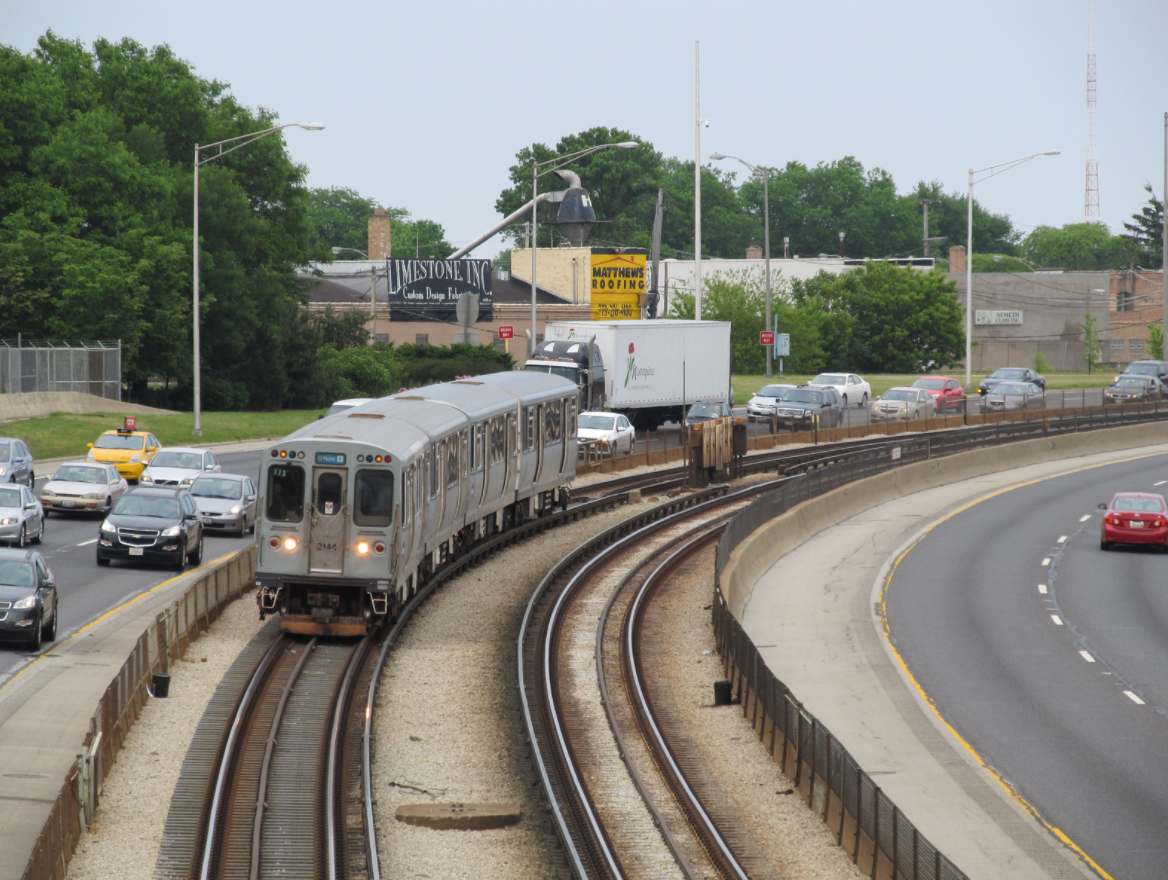The Illinois governor and state legislature races are heating up, with primaries taking place on Tuesday, March 20. Last week the Active Transportation Alliance released its 2018 Illinois Sustainable Transportation Platform, based on input from the advocacy organization’s members, staff, board, and partner organizations. The document reflects the group’s efforts to shift state priorities from maintaining the car-oriented status quo to making positive changes for a safer, healthier, more sustainable, and more equitable future.
The introduction to the platform notes that Illinoisans are increasing interested in having more transportation options and living in walkable, bikeable, transit-friendly communities. It points out that while sustainable transportation projects are generally much cheaper to build than driving infrastructure, studies show that they creates ten jobs for every $1 million invested, about 50 percent more than car-only projects.
As such, one of the platform’s three major goals is to dedicate more state funding to sustainable transportation projects. It notes that Illinois currently earmarks a minimal amount of funds for walking and biking and no money for transit infrastructure, while state funding for transit operations has been slashed several times in recent years. For example, as part of last summer’s budget deal, $76 million in state funds was cut for Chicago-area transit.
The platform calls on the next governor and general assembly to reverse the recent transit funding cuts. It also proposes the creation of a new Bike-Walk fund in the state budget with $50 million in state funds, which would still represent only 2 percent of the annual Illinois Department of Transportation budget. And it calls for an infrastructure bill with sustainable revenue sources dedicated to transit, walking, and biking projects, including setting aside at least 40 percent of total transportation funds for pubic transportation.
The second plank of the platform is reforming state transportation policy, which has historically prioritized easy driving above the safety of all road users and more efficient, equitable, and green transportation modes, to take a more multimodal approach. This includes:
- Reforming IDOT project development protocol to prioritize safety and always include walking and biking accommodations where needed.
- Including more and better walking and biking facilities on state routes.
- Revising state roadway design manuals to encourage traffic calming in areas with high pedestrian and bike traffic.
- Eliminating requirements for local governments to provide matching funds for bike and pedestrian facilities on state routes.
- Having IDOT evaluate the implementation of Illinois’ Complete Streets policy, in place since 2010, including looking at gaps in pedestrian facilities and ensuring that resources are equitably distributed to low-to-moderate-income communities.
- Allowing spot bike and pedestrian improvements to be made as part of street repaving projects.
- Requiring Illinois public schools to include walking and biking education in their phys ed curricula.
- Having IDOT fill the existing state bike coordinator position and create a pedestrian coordinator position.
- Following through with recommendations from Illinois’ 2012 bike plan, including prioritizing projects with Complete Streets elements within the multi-year planning process, establishing a bike-planning fund for local communities, especially, low-to-moderate income communities, and set up a transportation equity working group at IDOT.
The third plank of the platform is championing transformational projects. “The state’s transportation investments over the next four years will shape how Illinois residents get around for decades and affect the health, equity and sustainability of our communities,” the platform states. It calls for better transit and rush-hour demand strategies, such as congestion pricing, as an alternative to the proposed expansion of I-294, I-290, and I-55, which would encourage more driving. And it recommends advancing a vision for the reconstruction of North Lake Shore Drive and other roadways that reduces solo car trip by creating dedicated transit lanes.
The Active Trans platform is certainly a big ask – it requests that politicians take a totally different approach to transportation policy than currently exists. Chances are that, regardless of who gets elected in the general election on November 6, we won’t get everything on their wish list. But the platform is still a great conversation starter, asking decision makers to consider what kind of transportation system we want to see in the future, and not merely settle for the car-centric status quo.




